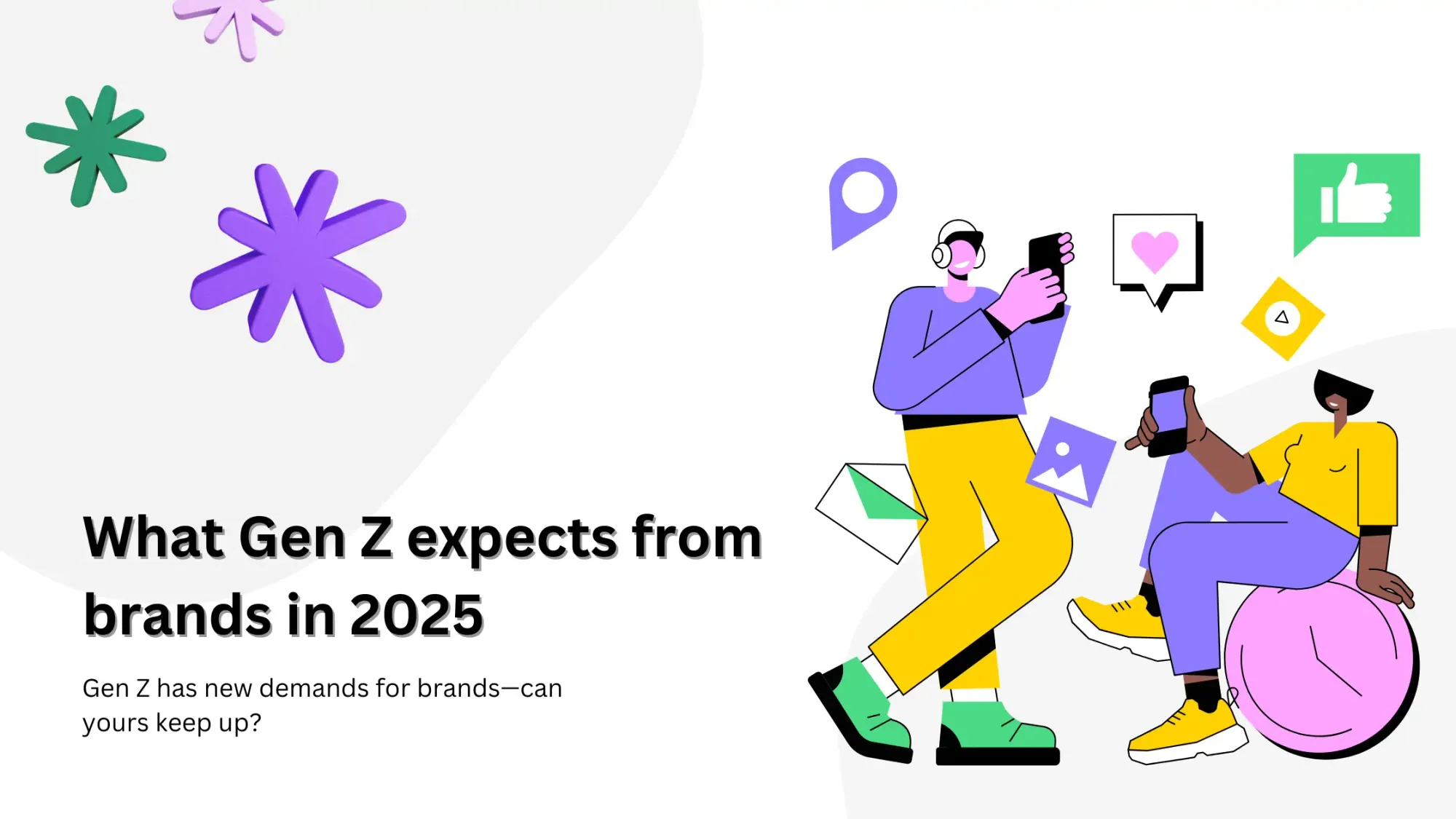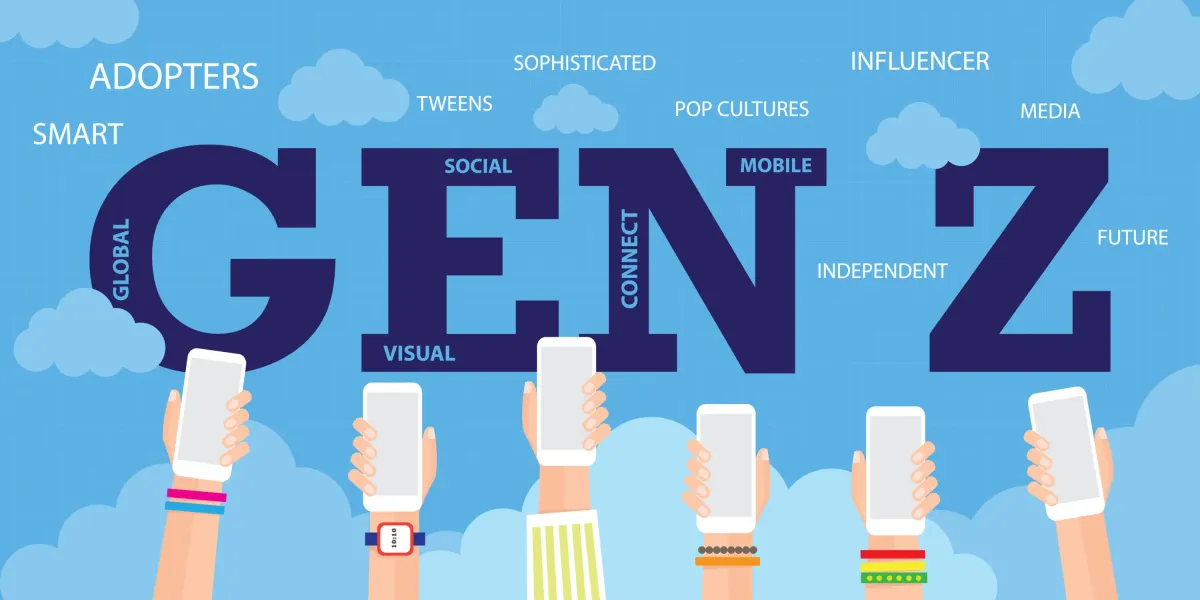Sustainability is not the only expectation Gen Z has for brands, here’s what matters
Gen Z has new demands for brands—can yours keep up?

In 2025, Gen Z is no longer just kids on TikTok; they’re stepping into key moments in their lives. With an age span of 13 to 30 this year, some are still in school, others are starting careers, and many are figuring out their professional paths. These stages mean their priorities are shifting, and so are their expectations for brands.
Gen Z’s spending influence is massive, shaping an estimated US$600 billion in global spending. This isn’t just about their own money but also how they influence their families’ spending.
For marketers, it’s clear: Gen Z is a generation you can’t ignore, and meeting their needs is key to staying relevant.
But here’s the thing: sustainability isn’t their only concern anymore. Yes, they care about the planet, but they’re also looking for brands to show authenticity, inclusivity, digital convenience, and even mental health awareness.
Let’s break it down.

💡 Pressed for time? Here’s what matters
- Gen Z, aged 13–30 in 2025, influences US$600 billion in global spending, impacting not just their own purchases but also family decisions.
- Their expectations go beyond sustainability to include authenticity, inclusivity, digital convenience, and mental health awareness.
- Key demands: Brands must be transparent, offer seamless digital experiences, embrace diversity, support mental health, and provide personalized, flexible options like BNPL.
- As they grow, their priorities will shift—teens focus on trends, young adults balance budgets, and professionals invest in long-term values.
- To stay relevant, brands must adapt now, focusing on what truly matters to this influential generation.

What Gen Z expects from brands in 2025
1. Authenticity in communication
Gen Z doesn’t trust anything that feels fake. They’ve grown up online, surrounded by ads and influencer campaigns, and they’ve learned to spot when something isn’t genuine.
To earn their trust, brands need to be open about their values, challenges, and actions. This doesn’t mean creating another “relatable” tweet. It means being real. For example, they’d rather hear specifics like, “We’re cutting waste by 30%” than vague claims like, “We support sustainability”.
2. Seamless digital experiences
Gen Z grew up with smartphones, so they’re used to having everything at their fingertips. Slow apps or complicated websites? They’re not sticking around for that.
They want things to be fast and easy. Platforms like TikTok keep them hooked with instant engagement, and brands need to match that level of digital smoothness. Offering features like one-click purchases or Buy Now, Pay Later (BNPL) options shows you get their need for convenience. If a process feels clunky, Gen Z will quickly move to a competitor.
3. Mental health prioritization
This is a generation that’s grown up with social media, and it’s taken a toll. Many Gen Zers report feeling anxious or stressed, often linked to their online lives.
Brands can connect by addressing these challenges head-on. Campaigns that normalize mental health conversations or products that promote well-being—like self-care tools or screen-time management features—show you understand their world.
4. Inclusivity and representation
Gen Z is incredibly diverse, and they expect brands to reflect that. It’s not just about putting a range of faces in ads; it’s about creating products and services that everyone can use. Think gender-neutral skincare or culturally inclusive designs.
For Gen Z, representation is non-negotiable. Brands that fail to include everyone risk being dismissed as out of touch. They don’t want performative efforts; they want real change.
5. Flexible and personalized options
This is the generation of Spotify playlists and Netflix recommendations. They expect brands to offer the same level of personalization. Whether it’s customizable sneakers or curated subscription boxes, they love products that feel made just for them.
Flexibility matters too. Payment options like BNPL let them control how and when they spend. These models work because they understand Gen Z’s need for choice and control.

How do these tie into their life stages?
In 2025, Gen Z’s expectations depend on where they are in life.
Teens (13–18) care about self-expression and following trends. Young adults (19–24) are balancing independence and budgets, so they want quality at a good price. Early professionals (25–30) are investing in products that align with their long-term values, like sustainability and durability.
Over the next decade, their focus will shift.
By 2030, many will prioritize premium products and family-friendly solutions as they move into mid-career and family-building stages.
By 2035, they’ll have higher purchasing power and demand top-tier quality, loyalty programs, and strong brand values.
But no matter their age, authenticity, inclusivity, and mental health awareness will stay key.
Here are five ways brands can prepare to meet Gen Z’s expectations:
- Be transparent and open about your actions and values—don’t hide behind buzzwords.
- Invest in seamless digital platforms to make every interaction simple and fast.
- Incorporate mental health into your brand’s messaging and offerings.
- Embrace inclusivity and ensure that your products reflect diverse needs and identities.
- Offer personalization and flexible options that let Gen Z feel in control.
By understanding what matters to Gen Z now and anticipating their future needs, brands can build lasting connections with this influential generation.
It’s not just about meeting their expectations today—it’s about staying relevant for the long haul.
FAQs
What is Gen Z's biggest issue?
Climate change, social inequality, and mental health are Gen Z's top concerns, shaping their expectations of brands to take meaningful action.
What are Gen Z's goals?
They aim for financial independence, personal well-being, and contributing to a better world through purposeful actions.
What does the Gen Z want?
Gen Z wants brands to be authentic, inclusive, and aligned with their values like sustainability and diversity.
What are Gen Z aspirations?
They aspire to live fulfilling lives with meaningful careers, financial stability, and the ability to make a positive social impact.





